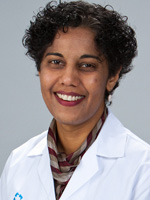 Mrs. Jones (name changed) who had never smoked her entire life was surprised to be diagnosed with lung cancer. Fortunately, she has a lung cancer that can be treated with pills. In fact, the type of lung cancer that responds to pills is often seen in never smokers and tends to be less aggressive than lung cancers seen in smokers. The good news is that we have had many recent advances in treatment of lung cancer. We now have three FDA approved pills, Tarceva, Xalkori and Gilotrif which can be used to treat certain types of advanced lung cancers in addition to other available intravenous chemotherapy medicines.
Mrs. Jones (name changed) who had never smoked her entire life was surprised to be diagnosed with lung cancer. Fortunately, she has a lung cancer that can be treated with pills. In fact, the type of lung cancer that responds to pills is often seen in never smokers and tends to be less aggressive than lung cancers seen in smokers. The good news is that we have had many recent advances in treatment of lung cancer. We now have three FDA approved pills, Tarceva, Xalkori and Gilotrif which can be used to treat certain types of advanced lung cancers in addition to other available intravenous chemotherapy medicines.
While smoking is the most common cause of lung cancer, non smokers can also get lung cancer. Other causes of lung cancer include second hand smoking, exposure to asbestos, prior radiation to chest, and exposure to radon.
Lung cancers are often detected when evaluating symptoms such as cough, shortness of breath, wheezing, coughing up blood, and new-onset hoarseness of voice, weakness, loss of appetite or weight loss. Occasionally, it may be detected incidentally if a person is getting an Xray or a CT scan for some other reason.
There are two main types of lung cancer, a less aggressive, but more common Non Small Cell Lung cancer and a very aggressive Small Cell Lung cancer. A biopsy is needed to differentiate between the two types of lung cancers. We often do additional scans to see if the cancer may have spread anywhere and to determine the stage of the cancer.
If caught at an early stage, lung cancer can be cured by surgery. Advanced lung cancers are treated with chemotherapy and/or radiation therapy. Many studies have shown that chemotherapy significantly improves one’s quality of life and survival even when the cancer is incurable or at an advanced stage. We now have effective supportive care medications and treatments which greatly decrease many of the side effects from cancer or treatment related side effects such as nausea, vomiting, and low blood counts.
Smoking accounts for 80-90% of all lung cancers and unfortunately lung cancer is the most common cause of cancer death in both men and women. We can however prevent many deaths by quitting smoking and urging our friends and loved ones to quit smoking. Also, low dose CT scan is now available across many centers in the US to screen for lung cancers in high risk persons such as heavy smokers. The New Year is just around the corner. This is a great time to pick a quit date before this year ends and start fresh in the New Year with healthier and smoke-free lungs!
Priya Rudolph, MD,PhD
Dr. Priya Rudolph, a graduate from Yale University is an experienced hematologist/oncologist with Georgia Cancer Specialists affiliated with Northside Hospital Cancer Institute (www.gacancer.com). She has offices in Athens (ph 706-369-4478) and in Greensboro (Ph 706 454-0159). Georgia Cancer Specialists is a top 10 privately owned practice and is a national leader in advanced cancer treatment and research. Its physicians and staff offer many clinical trials and state of the art personalized care to each individual patient.